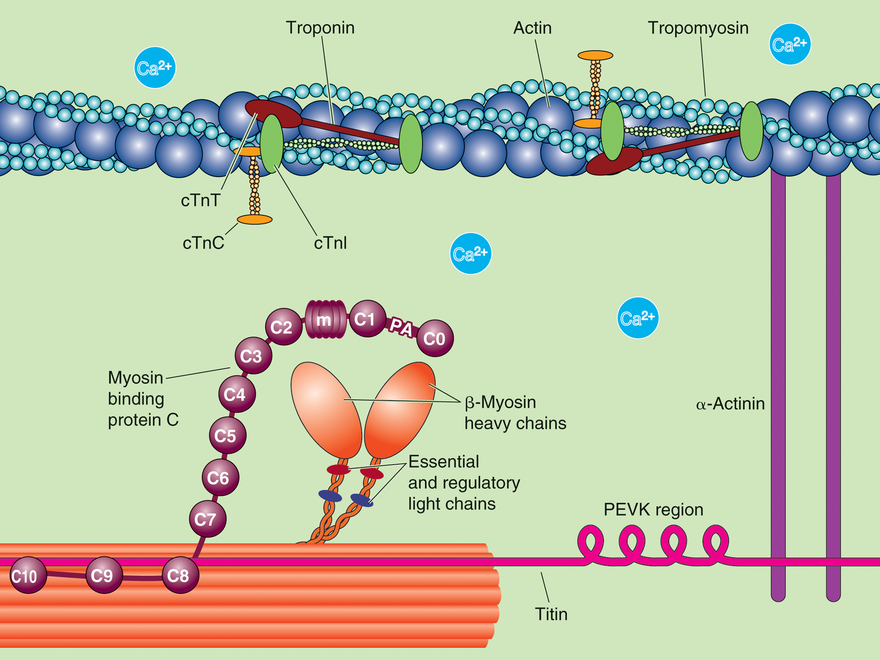
Cellular and molecular mechanisms of cardiac muscle contraction in health and disease
The major area of research in my lab is understanding the molecular mechanisms that govern the regulation of contractile function in the cardiac sarcomere. In particular, we are focused on unraveling the functional roles of contractile proteins in the modulation of force generation and cross-bridge kinetics in cardiac muscle. We study the functional effects of post-translational modifications of contractile proteins at the level of the myofilaments and in vivo whole organ function, and how genetic defects in these proteins lead to altered cross-bridge function and the development of impaired contractile function in vivo and ultimately dilated and hypertrophic cardiomyopathies. We employ a variety of molecular and biophysical techniques to study cross-bridge function and cardiac muscle mechanics. We utilize knockout and transgenic animal models as well as in vivo gene transfer techniques to study the functional roles of contractile proteins on in vivo cardiac function using echocardiography, pressure-volume catheterization, and magnetic resonance imaging.
Schematic of the cardiac sarcomere

The cardiac sarcomere is composed of a network of contractile and structural proteins that regulate cardiac muscle function. The force and speed of cardiac muscle contraction is a major determinant of in vivo organ function and is modulated by the cyclical interactions of actin and myosin. Regulation of actin and myosin binding is determined by a network of myofilament regulatory proteins and the level of intracellular Ca2+. The troponin complex and tropomyosin are thin filament proteins which govern the availability of actin binding sites, and the essential and regulatory light chains, and myosin binding protein C modulate the position and mechanical properties of myosin.
| Major Research Areas |
|---|
| Contractile Function, Development of Therapeutics, Drug discovery, Heart Failure/Hypertrophy, Muscle, Protein Structure/Function, Protein-Protein Interactions, Therapeutics |
| Disciplines |
| Animal Models, Biophysics, Cellular Biology, Physiological Phenotyping, Systems Biology |
| Organ Systems |
| Cardiovascular System |
| Diseases |
| Cardiomyopathies, Heart Failure, Hypertension, Myocardial Infarction |
| Major Techniques |
| Cellular and Molecular Biology, Echocardiography, Ex Vivo Functional Analysis, Gel Electrophoresis/Western Blots, Gene Therapy, Immunohistochemistry, In-vivo Animal Models, In-vivo Hemodynamics, Mathematical Modeling, Molecular Biology, Molecular Dynamics, Peptide Drug Design, Protein Expression, Radiotelemetry, Stopped Flow Spectroscopy |